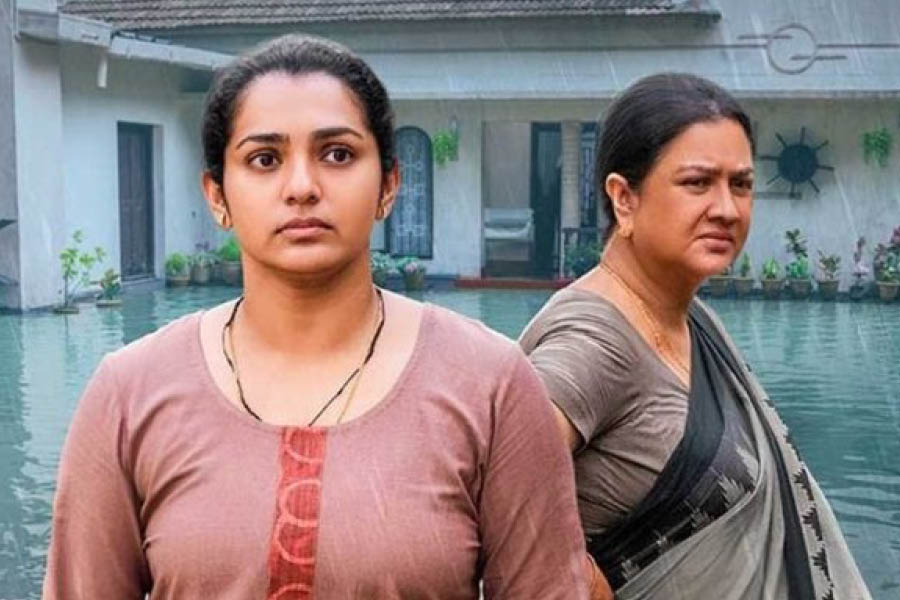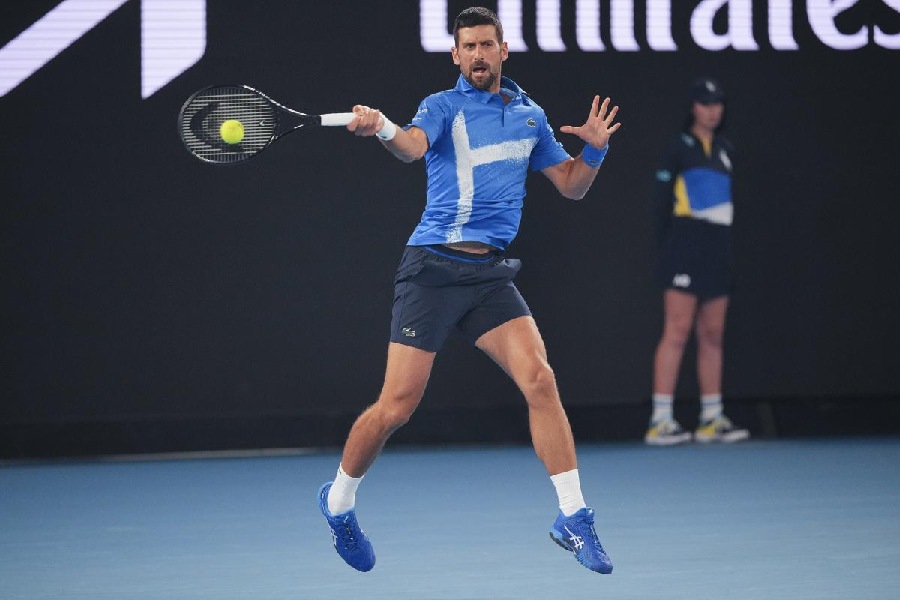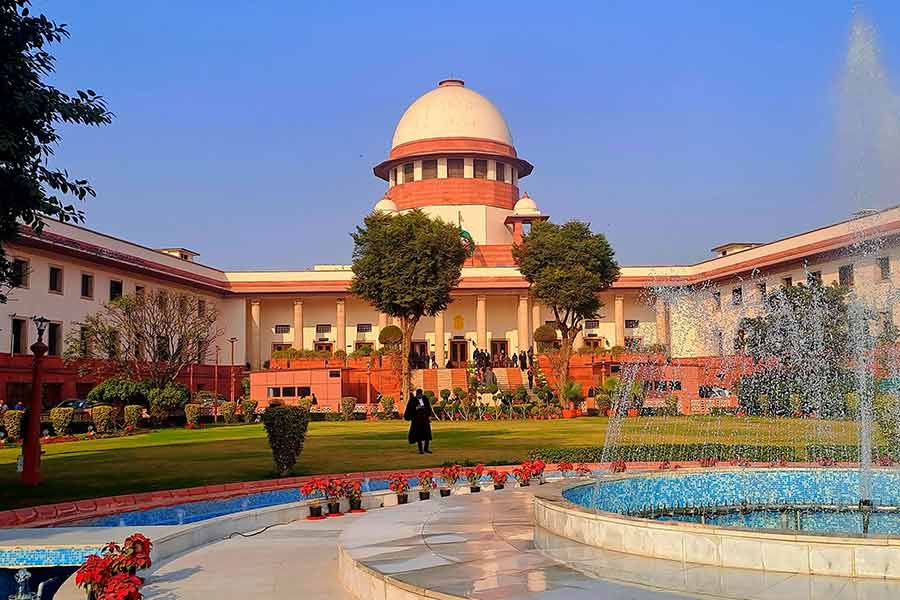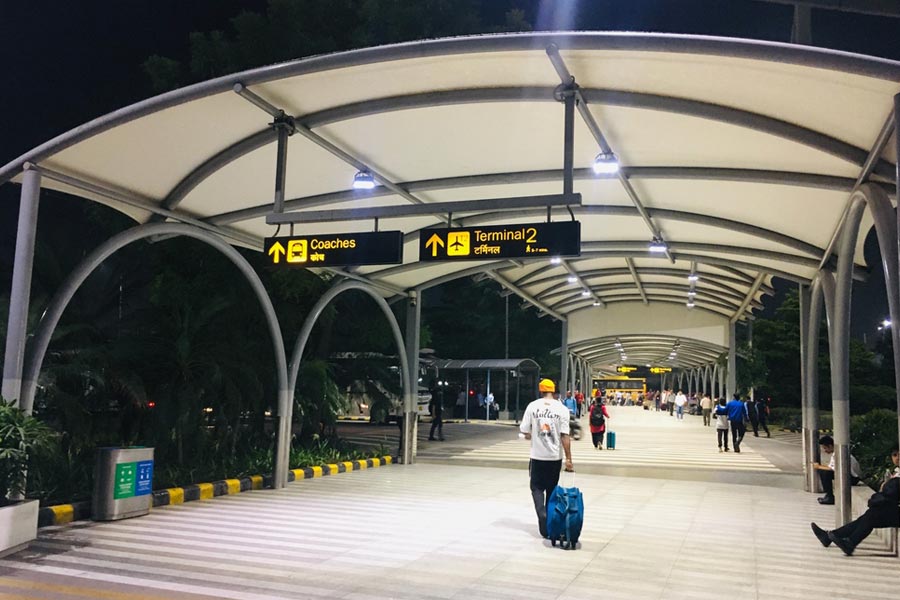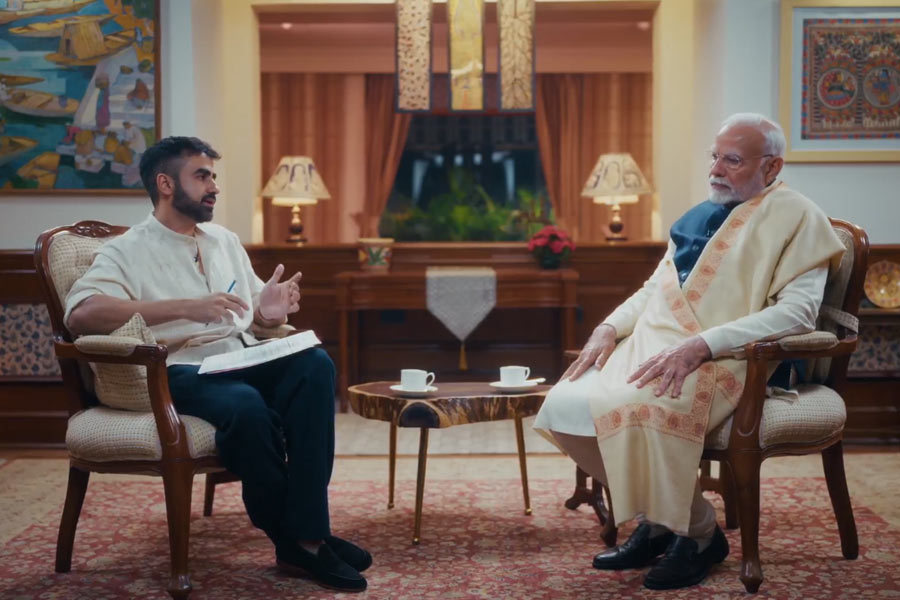Christo Tomy’s feature directorial debut Ullozhukku (Undercurrent) is perhaps one of the finest Malayalam films of 2024. Through the lives of two women, Ullozhukku — streaming on Prime Video — explores how the undercurrents of patriarchy have familial relationships in a stranglehold.
Set in the flood-stricken Kuttanad area of Kerala, Ullozhukku revolves around Leelamma (Urvashi) and her daughter-in-law Anju (Parvathy Thiruvothu), whose lives are thrown into a turmoil after the death of Anju’s husband Thomaskutty (Prashanth Murali). As Thomaskutty’s funeral is delayed indefinitely because of the floods, Leelamma and Anju’s bittersweet relationship is tested as secrets around both the women’s past are spilt.
The complex dynamic between the mother-in-law and the daughter-in-law is one of the film’s strong points. Leelamma’s joy knows no bounds when she learns that Anju is pregnant; she feels her dead son will return as the baby. Leelamma is a matriarch who cares for Anju like her daughter; at the same time, she is completely unaware that Anju feels stifled in that house.
When Leelamma discovers Anju’s affair with her ex-boyfriend Rajeev (Arjun Radhakrishnan), she feels betrayed. The film avoids pitting Leelamma and Anju against each other and instead focuses on the empathy they are able to develop for each other, realising that both are victims of an oppressive family system that ignores and muzzles women’s desires. This comes through poignantly when Leelamma confides in Anju that she wanted to pursue a degree in medicine but was forced into marriage by her father.
Ullozhukku draws attention to the fact that authoritarian parenting and scotching a child’s independent thinking in the Indian family set-up is intergenerational, and especially so in the case of a girl child. Both Leelamma and Anju’s mother, Jiji (Jaya Kurup), have internalised this patriarchal notion of discipline and filial duty. Leelamma kept the fact that Thomaskutty had a brain tumour as a child a secret while looking for a bride for him. Jiji dismissed Anju’s relationship with Rajeev and forced her to marry Thomaskutty.
Director Christo Tomy uses the turbulent weather as a metaphor for the turbulence in the lives of his central characters. The floodwaters, which trap the characters in their home, mirror the emotional and psychological turmoil they have to endure. The film’s pacing allows the tension to build gradually. Right from the opening scene where Anju smiles and chats with her boyfriend, which fades quickly after her marriage to Thomaskutty, the film establishes a tone of suffocation and tension. This claustrophobic atmosphere is brought alive by cinematographer Shehnad Jalal through close-ups and mid-shots, ensuring that viewers feel the weight on the characters’ chests as secrets surface and die down.

